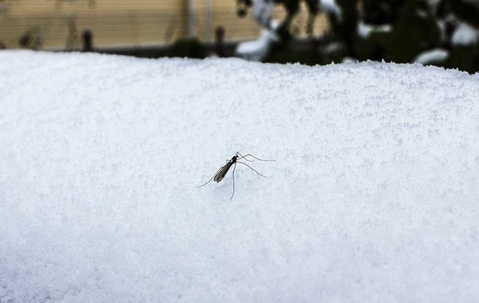You might not encounter those painful and itchy mosquito stings during winter. Well, that does not prove that they are not around. Most of us have a misconception that these blood-sucking pests die when winter arrives. But this piece of information might surprise you.
Mosquitoes, often associated with deadly diseases from malaria to Zika virus, are believed to be the most annoying and troublesome pest, especially during warmer months of the year. But what happens to them during the colder season? Like other pests, mosquitoes do not migrate to warmer places or die. In fact, they hibernate to survive difficult temperatures. As mosquitoes are cold-blooded, they prefer to lie dormant when temperatures get lower than 50 degrees Fahrenheit. This is when this pesky pest shuts down and goes into hibernation mode.
As mentioned earlier, mosquitoes do not die due to cold temperatures, but they often choose spots like eaves and attics of houses, tree barks, or other animals as shelter. In fact, when the temperature begins to drop below 50 degrees Fahrenheit, the female mosquitoes use this final opportunity to lay the last batch of eggs in still water. The aftereffect is initiated when temperatures rise and rainfall begins. This is the time when the eggs begin to hatch, and a new and more destructive generation is born.
However, we at Accurate Pest Control in San Antonio suggest immediate action by utilizing residential or commercial pest control services to get the situation under control. We recommend you to be more vigilant while spending time outdoors this winter. Hence, preventive mosquito control measures are a must. Make sure to follow mosquito-safe habits to keep the surroundings free from mosquitoes and health-related risks.
Mosquito bites can get fatal. So, never overlook their presence and make a smart move immediately. In fact, winter is the best time to get a head start with the mosquito prevention routine.

